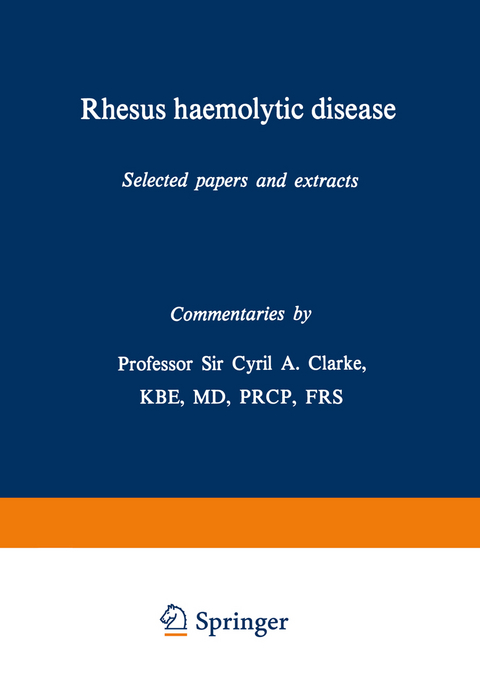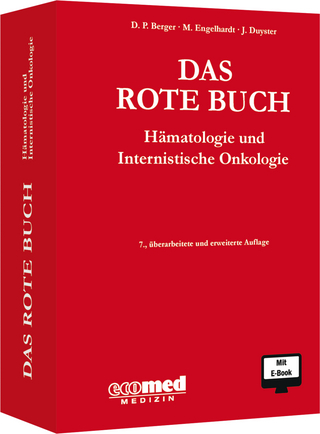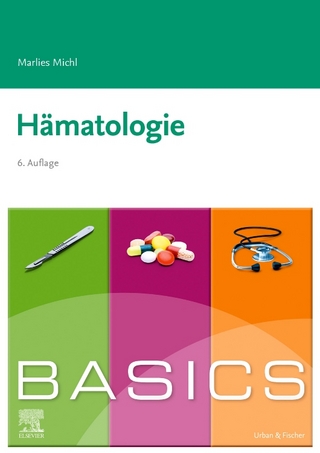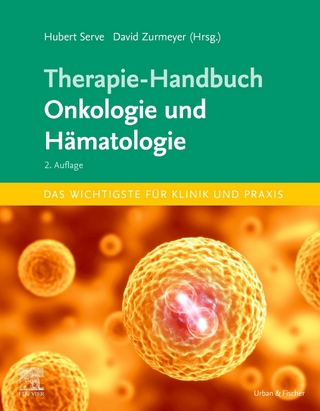
Rhesus haemolytic disease
Springer (Verlag)
978-94-011-6140-4 (ISBN)
Section 1 Discovery of the Rh blood group system and related matters.- 1. Icterus gravis (Erythroblastosis) neonatorum.- 2. An unusual case of intra-group agglutination.- 3. An agglutinable factor in human blood recognised by immune sera for Rhesus blood.- 4. Hemolytic reactions following transfusions of blood of the homologous group, with three cases in which the same agglutinogen was responsible.- 5. The role of iso-immunization in the pathogenesis of erythroblastosis fetalis.- 6. Serological factors as possible causes in spontaneous abortions (extracts).- 7. Blood Groups in Man (extract).- 8. A new test (blocking test) for Rh sensitization.- 9. An incomplete antibody in human serum.- 10. Detection of weak and “incomplete” Rh agglutinins: a new test.- 11. Use of trypsin in the detection of incomplete anti-Rh antibodies.- 12. Anti-Rh serum nomenclature.- 13. Anti-Rh serum nomenclature.- 14. Heredity of the Rh blood types (extract).- 15. Some notes on Fisher’s contributions to human blood groups (extract).- Section II Methods of treating the established disease.- 16. Erythroblastosis foetalis or haemolytic disease of the newborn.- 17. Controlled trials of the treatment of haemolytic disease of the newborn.- 18. Composition of liquor amnii in haemolytic disease of newborn.- 19. The antenatal prediction of haemolytic disease of the newborn (extract).- 20. Intrauterine transfusion of foetus in haemolytic disease.- Section III Prophylaxis.- 21. The influence of mother-child ABO incompatibility on Rh immunisation.- 22. Demonstration von fetalem Hämoglobin in den Erythrocyten eines Blutausstrichs.- 23. Foetal erythrocytes in the maternal circulation.- 24. The Sources of Invention (extract).- 25. Erythroblastosis (extract).- 26. Experimental studies on the prevention ofRh-haemolytic disease.- 27. Experimental isosensitization to hemoantigens in man (abstract).- 28. Experimental isiommunization to hemoantigens in man (extract).- 29. Current Concepts: Antepartum management of Rh Hemolytic disease (extract).- 30. Successful prevention of experimental Rh sensitization in man with an anti-Rh gamma2-globulin antibody preparation.- 31. Untersuchungen zur Serologischen Prophylaxe der Rh-Sensibilisierung.- 32. Further experimental studies on the prevention of Rh haemolytic disease.- 33. Prevention of Rh-haemolytic disease: a third report.- 34. Prevention of Rh-haemolytic disease: results of the clinical trial.- 35. Results of clinical trials of RhoGAM in women.- 36. The suppression of Rh immunisation by passively administered human immunoglobulin (IgG) anti-D (anti-Rho).- 37. The estimation of the concentration and equilibrium constant of anti-D..- 38. Suppression of primary Rh immunization by passively-administered antibody: Experiments in volunteers.- 39. Prevention of Rh haemolytic disease. Editorial.- 40. The pathogenesis and prevention of Rh immunization.- 41. Prevention of Rh-haemolytic disease..- 42. Prevention of Rh haemolytic disease..- 43. Studies on Rh prophylaxis. Relationship between doses of anti-Rh and size of antigenic stimulus.- 44. Prevention of Rh-haemolytic disease: final results of the “high-risk” clinical trial.- 45. Prevention of Rh-haemolytic disease; results of the Liverpool “low-risk” clinical trial.- 46. Report of MRC anti-D Working Party.- 47. Effectiveness of Rh Prophylaxis.- 48. Rh and iso-immunisation: Summary of a 1974 Workshop.- Further References and Addresses.
| Zusatzinfo | 313 p. |
|---|---|
| Verlagsort | Dordrecht |
| Sprache | englisch |
| Maße | 210 x 297 mm |
| Themenwelt | Medizinische Fachgebiete ► Innere Medizin ► Hämatologie |
| ISBN-10 | 94-011-6140-2 / 9401161402 |
| ISBN-13 | 978-94-011-6140-4 / 9789401161404 |
| Zustand | Neuware |
| Haben Sie eine Frage zum Produkt? |
aus dem Bereich


